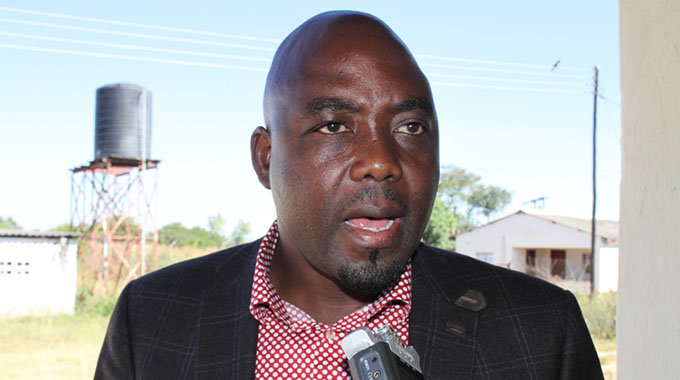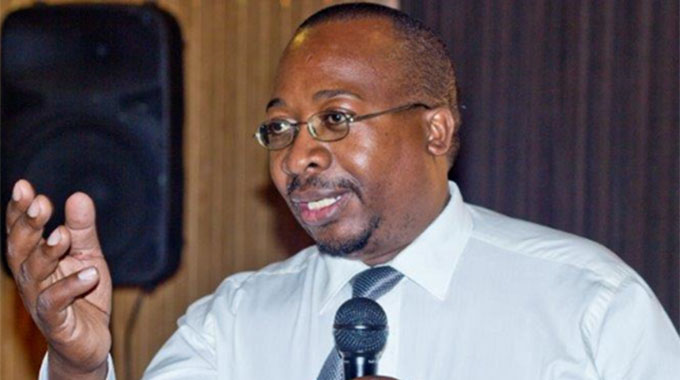Off-grid solutions to power crisis

Sifelani Tsiko Agric, Environment & Innovations Editor
With the country’s main power utility, Zesa, struggling to provide adequate connections to growing demand in both rural and urban areas, Zimbabwe should push aggressively for new off-grid solutions to help the country achieve universal access to sustainable energy by 2030.
The country’s sole power utility is short on cash for power imports and for technological upgrades since it charges under-market prices and relies heavily on obsolete equipment.
Government and energy utilities on their own cannot generate adequate power for the rapidly urbanising population.
In addition, the Government cannot subsidise electricity indefinitely and Zimbabwe needs to begin moving on a path of sustainability for the energy generation.
The recent commissioning of Zimbabwe’s first solar-powered 99kw mini-grid in Gwanda rural district which is now benefiting more than 10 000 people is a sustainable model which must be replicated across the country.
The Mashaba solar-powered mini-grid was funded by the European Union (EU) aid for development cooperation in Africa, the Caribbean, and Pacific (ACP Group) countries, with co-financing from the OPEC Fund for International Development (OFID) and the UNDP, Global Environmental Facility (GEF).
This project which benefited Zimbabwe and Malawi was implemented by a consortium of NGOs with Practical Action as the lead partner supported by SNV Netherlands Development Organisation, Hivos and the Dabane Trust.
At present, this project is now helping the local community to survive droughts, enhance food security and improve livelihoods through connecting them to the Mashaba solar-powered mini-grid.
The small and decentralised solar power system operates independently of the main grid managed by the country’s power utility, Zesa.
It offers greater stability and independence than traditional off-site power stations giving the local Gwanda community control over their energy needs.
At present, the mini-grid provided power to a radius of up to 25km helping to boost economic activities in three irrigation schemes — Mankonkoni, Sebasa, Rustlers’ Gorge — as well as Mashaba and Msendami business centres and Mashaba Clinic and Mashaba Primary School.
The installation of the solar system is helping the local community to make significant savings on energy costs while at the same time promoting a cleaner environment.
This model provides some useful insight on what can happen if the decentralisation of electricity generation is taken boldly as a strategy to resolve some of the country’s pressing energy problems.
All what is needed is to create a better investment climate and stronger local community and government capacity to scale up such a model.
The country’s Rural Electrification Agency (REA) should adopt a series of new policies and plans to push for new off grid solutions which can lead to a rapid expansion of the national grid to most remote parts of the country which are yet to be connected.
Mobilising funding options from both local entities and development partners could help enhance the establishment of micro-grids in rural communities dotted around the country.
The country needs to scale up its own investments on solar power micro-grids, seek to build technical partnerships with development partners as well as elicit political capital to support the rolling out of such electrification programmes.
Access to electricity is key to the success of Vision 2030 and other goals on energy, education, health, food security, industrialisation and an improved quality of life.
The Mashaba solar-powered mini-grid, for example, is now transforming lives and communities through unlocking benefits to health, education, water and food security, livelihoods, gender equality and the environment.
Access to energy has brought cheer to the lives of people in Gwanda South constituency.
“The coming of electricity from our Mashaba solar power mini grid has brought joy and hope to us here.
“We now have improved lighting to help us conduct deliveries at our clinic,” says Sikhangele Ndlovu, sister-in-charge at Mashaba Clinic.
“Before we got electricity, we used candles and our phones to help women deliver. This compromised privacy and safe delivery for the mothers. Lighting was so poor especially when we were suturing the patient.”
Staff at the clinic now have access to Internet, energy for lighting and domestic use.
Access to power is helping the clinic to retain staff and reduce the referring of cases to Manama Mission Hospital.
“The coming of electricity has made our job easier and we are now able to attend to our patients in a much more efficient and better way,” says Priscilla Mano, a nurse at the clinic.
For Primrose Ndlovu (11), Talent Khumalo (11) and Caleb Ncube (10) — all pupils at Mashaba Primary School, the coming of electricity has brightened their hopes of pursuing their education to a higher level.
Electricity has made it possible for the remote school to open a computer lab and enhance lighting — a critical component that helps support a reading culture among young children.
“I’m now able to operate a computer, type and participate in our interactive learning boards and tools,” says Primrose.
“Its exciting and I think it will help us to pass.”
The pass rate at the school has increased to 38 percent up from just 15 percent when there was no electricity a few years ago.
Reading and writing skills have improved tremendously owing to access to energy by the school.
The solar mini grid is providing power to a radius of 25km helping to boost economic activities in three irrigation schemes — Mankonkoni, Sebasa and Rustlers’ Gorge, business centres — Mashaba and Msendami as well 2 social services; Mashaba Clinic and Mashaba Primary School.
Energy diversification, with increased use of renewable solutions, should be a strategic priority for Zimbabwe to achieve sustainable economic growth.
Promoting the development of more solar mini-grids will provide affordable and accessible energy supplies with a long-term energy security.
It will contribute to job creation, food security, water availability, improved livelihoods and competitiveness of rural informal industry.
With the main power utility grappling to minimise technical and financial losses and to ensure proper network planning and governance, small community run solar mini grids — such as the Mashaba plant, could help address Zimbabwe’s needs to a secured, diversified and sufficient supply of energy.
All this will, in turn, support long-term economic and social development as well as environmental sustainability.
Zimbabwe needs a massive roll out of solar mini grids to cope and adapt to the ever-shifting scope of global energy demands.
It might be costly in terms of the initial capital outlay, but a steadfast focus on delivering access to modern energy services to the poor might help expand energy access, reduce deforestation, increase rural business activity, improve education and health care.
Off-grid solutions need to be pursued with much attention, budget and a political will to help address energy needs of the majority of the poor.
“To achieve scale and reach the last mile, there is need to accelerate the transition from grid-centric approaches to wards integrated plans combining grid, mini-grid, off-grid and clean cooking solutions,” says a 2018 Practical Action Poor People’s Energy Outlook report.
“By redirecting resources from grid extension into other solutions, governments can accelerate energy access progress, attract higher levels of private investment and reach more people at lower cost.”
With much of Zimbabwe’s grid power network overstretched and in need of repair, the off-grid solution is key to helping the majority of the poor to access energy as well as to attain the country’s Sustainable Development Goals on energy, health, education, food security and a sustainable environment.








Comments